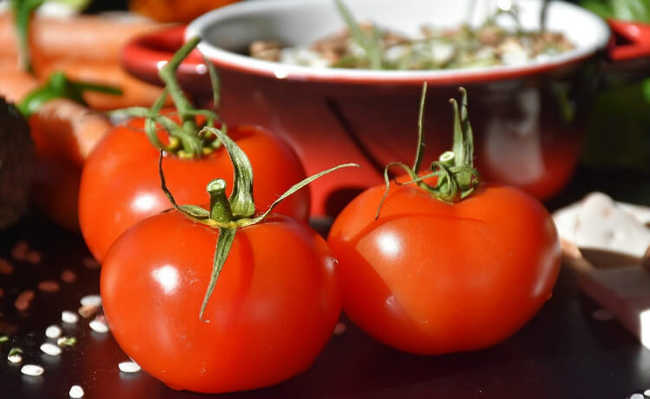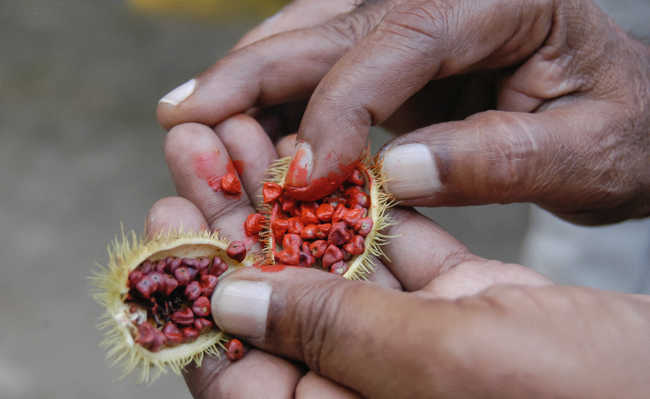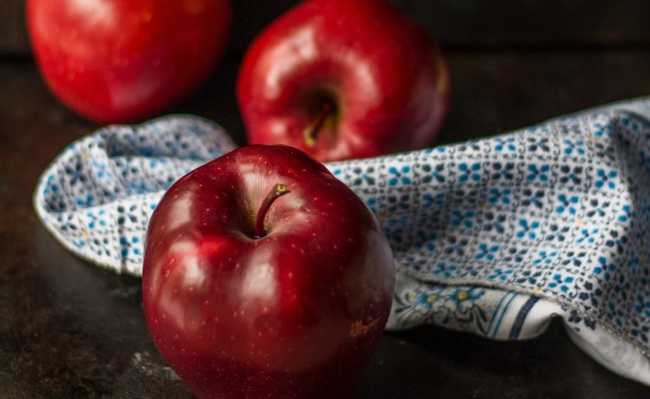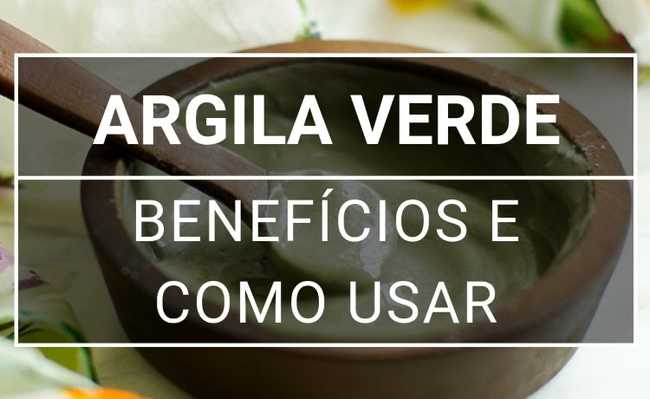16 foods that are natural anti-inflammatory
Experts explain the importance of anti-inflammatory foods in our daily lives

You may not know it, but there are foods that are natural anti-inflammatory and can be critical to our health. They who acquired such properties due to evolution.
Certain plants and fungi have developed, over time, a natural defense system that helps protect against predators. Sharon Palmer, the author of The Plant Powered Diet he states that, as the plant cannot simply get up and run away from insects, sunlight and viruses, the medium selected those individuals that developed anti-inflammatory resistance. And the coolest thing about it is that these properties are passed on to the human body through the ingestion of such vegetables.
What is inflammation?
In any infection or injury, our body develops inflammation as a defense mechanism that is part of the healing process. For example, if you sprain your ankle and it swells, this is a signal to alert you to the injury at the site. In principle, it helps protect you from worse trauma. But it can become a problem when the actual infectious agent hasn't been eliminated - so the body alone cannot shut down the inflammatory response. Thus, according to Julie Daniluk, nutritionist and presenter of the program The Healthy Gourmet, beneficial inflammation can become chronic, which is a problem.
Chronic inflammation can lead to weight gain and illness. Stress, inflammatory foods and low levels of physical activity can make this risk even greater. Certain diseases, such as diabetes, are linked to chronic inflammation. Heart disease and inflammation are also linked, as are possibly certain types of cancer, again according to Daniluk.
But even if you don't have any problems, following a diet with anti-inflammatory foods will only do you good. Discover 16 foods that are natural anti-inflammatory:
Green cabbage
Kale has been voted “the most nutrient-rich food on the planet,” says Daniluk. The vegetable has many vitamins - one serving contains 121 milligrams of omega-3 fatty acids and 94.2 milligrams of omega-6. You can consume cabbage as food (salads, farofa, stir-fry and other forms) and even as a drink.
Sesame and hemp seeds
Often our own immune system attacks our tissue, as in rheumatoid arthritis or lupus. This is an over-response of the immune system and evidence that we need an "immune controller" to keep things normal. “These two seeds contain plant sterols that help modulate the immune system and reduce an overreaction,” says Julie. The seeds are extremely rich in vitamins B1, B3 and E, not to mention that calcium, iron, magnesium, manganese, zinc are also present and help the immune balance.
- Sesame Benefits
- Iron: importance and impacts of its extraction
- What are iron rich foods?
- Sesame Oil Provides Health Benefits
- Your brain loves magnesium, but do you know it?
mushrooms
Shitake mushrooms contain a property that increases and contributes to immunity when fighting an infection. They also have antimicrobial characteristics and are currently used for cancer treatments. This type of mushroom is much stronger than traditional mushrooms. Julie says that "the polysaccharides found in this type of mushroom can reduce the effects of compromising the immune system."
Pumpkin
Pumpkins are rich in carotenoids, which are antioxidants - they act as a protection against excess free radicals in the body, which can cause premature aging and even cancer. The beta-carotene compound is a preventive against inflammatory conditions of the skin and lungs.
- Seven Pumpkin Seed Health Benefits
- Pumpkin seed oil has unmissable benefits
- Antioxidants: what are they and in what foods to find them
Broccoli
Broccoli is extremely nutritious. It is a cruciferous vegetable just like cauliflower, Brussels sprouts and kale.
- Ten benefits of cauliflower for health
Studies have shown that a diet rich in cruciferous vegetables is associated with a decreased risk of heart disease and cancer (see studies here: 1, 2). This could be related to the anti-inflammatory effects of these crucifers. Broccoli, for example, is rich in sulforaphane, an antioxidant that fights inflammation by reducing its levels of cytokines and NF-kB, which boost inflammation (see studies about it here: 3, 4, 5).
Red fruits
Red fruits such as strawberries, blackberries and raspberries contain antioxidants called anthocyanins. These compounds have anti-inflammatory effects that can reduce the risk of chronic disease (see studies about 6, 7, 8, 9, 10 here). The body produces NK cells that help keep the immune system working properly.
In one study, men who consumed blueberries every day produced significantly more NK cells than men who didn't.
In another study, overweight men and women who ate strawberries had lower levels of certain inflammatory markers associated with heart disease.
- Anthocyanin present in red fruits brings benefits
- The incredible benefits of blackberry
Avocado
Avocado is an excellent anti-inflammatory food, as it is rich in potassium, magnesium, fiber and heart-healthy monounsaturated fats, in addition to containing carotenoids and tocopherols, which are associated with a reduction in cancer risk (see studies here a respect: 11, 12, 13).
- The benefits of avocado
- Avocado Oil: Benefits and Uses
- How to make avocado oil
- Avocado Recipes: Ten Easy and Delicious Preparations
Also, according to one study, a compound in avocado can reduce inflammation in young skin cells. In another analysis, people who ate a slice of avocado with hamburger had lower levels of inflammatory markers than participants who ate just the hamburger.
Green Tea
Green tea reduces the risk of heart disease, cancer, Alzheimer's disease, obesity and other conditions (see studies about it here: 14, 15, 16, 17).
Many of its benefits are due to the antioxidant and anti-inflammatory properties of a substance called epigallocatechin-3-gallate (EGCG). EGCG inhibits inflammation by reducing pro-inflammatory cytokine production and fatty acid damage in cells (18, 19).
chili and pepper
Peppers and peppers are rich in vitamin C and antioxidants that have powerful anti-inflammatory effects (see studies on this here: 18, 19, 20). Peppers provide the antioxidant quercetin, which can reduce a marker of oxidative damage in people with sarcoidosis, an inflammatory disease (see study about it here: 21).
Pepper, in turn, contains synapic acid and ferulic acid, which in addition to reducing inflammation, can lead to healthier aging (see study about it here: 22, 23).
- What is paprika, what is it for and its benefits
Grape
Like berries, grapes contain anthocyanins, which reduce inflammation. In addition, it can lower the risk of several diseases, including heart disease, diabetes, obesity, Alzheimer's disease, and eye disorders (see studies about it here: 24, 25, 26, 27, 28).
Grapes are also one of the best sources of resveratrol, another health-beneficial compound. In one study, people with heart disease who consumed grape extract daily experienced a decrease in inflammatory gene markers, including.
Turmeric
Turmeric, also called saffron, is a spice with a strong, earthy flavor that is often used in curry and other Indian dishes. It is effective in reducing inflammation related to arthritis, diabetes and other diseases (see studies about it here: 29, 30, 31, 32, 33, 34, 35).
One gram of curcumin combined with black pepper piperine caused a significant decrease in the inflammatory marker of CRP in people with metabolic syndrome, according to the study.
Extra virgin olive oil
Extra virgin olive oil is a staple of the Mediterranean diet, being rich in good fats (monounsaturated). Studies link extra virgin olive oil intake to a reduced risk of heart disease, brain cancer and other serious health conditions (see studies here: 36, 37, 38, 39, 40, 41, 42).
- Benefits of different types of olive oil
In another study, inflammatory markers significantly decreased in those who consumed 50 ml of olive oil daily. Beyond The effect of oleocanthal, an antioxidant found in olive oil, has been compared to anti-inflammatory drugs such as ibuprofen, according to a study.
Dark chocolate and cocoa
Dark chocolate and cocoa are rich in antioxidants that reduce inflammation. They can also reduce the risk of disease and lead to healthier aging (see studies on this here:43, 44, 45, 46, 47, 48).
Flavonols are responsible for the anti-inflammatory effects of chocolate and keep the endothelial cells that line the arteries healthy (see studies about it here: 49, 50).
In one study, smokers showed a significant improvement in endothelial function two hours after ingesting dark chocolate with a high flavonol content.
- Seven Benefits of Dark Chocolate
Blueberry (blueberry)
The fruit contains polyphenols also found in grapes, red wine and red cabbage. The darker the color of the fruit or vegetable, the greater the antioxidant and anti-inflammatory content.
- Cabbage benefits
- Sauerkraut: benefits and how to do it
However, it is not enough that you simply target a diet based on anti-inflammatory foods, it is necessary that your diet is balanced and healthy. If you want to include more anti-inflammatory foods than those presented, tomatoes, nuts are good options, which should always be accompanied by regular physical activity to keep your body healthy.










